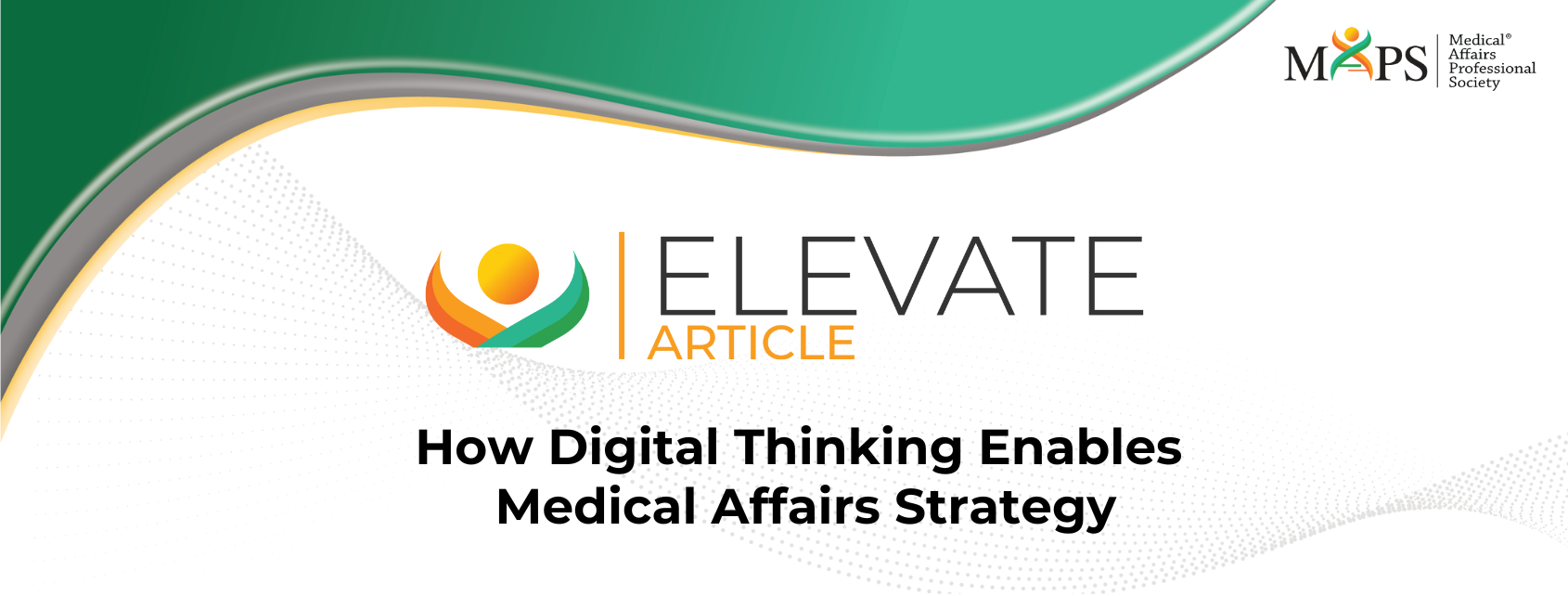Authors:
Sarah Clark, Global Head of Medical Affairs and Operations, Biogen Digital Health
Bora Erdemli, Associate Principal, ZS Associates
Vandana Garg, Medical Innovation Director, Wider Asia, GSK Consumer Healthcare
Stacey Gorski Head of U.S. Medical Excellence, Oncology Business Unit, AstraZeneca
Rahela Penovski, Founder, COGNEDT
Introduction
From the ubiquitous use of online and video calls to the emergence of telehealth, the pandemic accelerated digitalization across industries. In healthcare, digital technologies are improving prevention, screening and diagnosis, while enabling more precise monitoring of patients’ diseases progression and adherence to care plans. From the perspective of Medical Affairs teams in pharmaceutical, biotechnology and medical technology organizations, digitalization allows new ways of generating, analyzing, and interpreting data, as well as emerging mechanisms for scientific exchange, insight generation/management and forward-looking strategies to communicate findings with internal and external stakeholders. In short, digitalization offers Medical Affairs teams working within the healthcare ecosystem the opportunity to rethink strategy and actions across the lifecycle of traditional and nontraditional products, elevating Medical Affairs as a strategic partner within and beyond the organization.1
This article is the first in a three-part collaboration between the MAPS Digital and Medical Strategy Focus Area Working Groups (FAWGs) describing the role of Digital in guiding and enabling Medical Affairs strategy. Here we seek to define Digital, identify its value to internal and external stakeholders, and provide a recipe for embedding digital into Medical Affairs strategy.



